
Kod: 14166696
Navigating Intellectual Capital After the Financial Crisis
Autor Carol Yeh-Yun Lin, Leif Edvinsson, Jeffrey Chen, Tord Beding
In the first decade of the twenty-first century, the biggest event of worldwide proportion was the 2008 global financial crisis, which was caused primarily by ineffective governance, failed surveillance systems and implementation ... więcej
- Język:
 Angielski
Angielski - Oprawa: Miękka
- Liczba stron: 229
Wydawca: Springer-Verlag New York Inc., 2016
- Więcej informacji o książce

Zobacz książki o podobnej tematyce
-

My Life With Ellery Queen
55.63 zł -5 % -

Newman's Early Roman Catholic Legacy, 1845-1854
614.01 zł -

A Christian Girl's Diary: The Every Day Happenings Of An Average Christian Teenager
53.23 zł -

Murat
37.62 zł -

New Trends in Instrumentation for Hypersonic Research
1908.98 zł -

A Brit's Guide to New Orleans
30.73 zł -

SENSITIVE PLANT SPECIES SURVEY, GARFIELD
90.52 zł
Podaruj tę książkę jeszcze dziś
- Zamów książkę i wybierz "Wyślij jako prezent".
- Natychmiast wyślemy Ci bon podarunkowy, który możesz przekazać adresatowi prezentu.
- Książka zostanie wysłana do adresata, a Ty o nic nie musisz się martwić.
Więcej informacji o Navigating Intellectual Capital After the Financial Crisis
Za ten zakup dostaniesz 286 punkty
 Opis
Opis
In the first decade of the twenty-first century, the biggest event of worldwide proportion was the 2008 global financial crisis, which was caused primarily by ineffective governance, failed surveillance systems and implementation flaws. While fiscal and monetary policies succeeded in pulling many countries out of a financial freefall, most economies have performed beneath pre-recession levels as governments continued to struggle with their finances. Examining the financial crisis from the viewpoint of intangible assets provides a different perspective from traditional economic approaches. National Intellectual Capital (NIC), comprised mainly of human capital, market capital, process capital, renewal capital and financial capital, is a valuable intangible asset and a key source of national competitive advantage in today's knowledge economy. The authors-pioneers in the field-present extensive data and a rigorous conceptual framework to analyze the connections between the global financial crisis and NIC development. Covering the period from 2005 to 2010 across 48 countries, the authors establish a positive correlation between NIC and GDP per capita and consider the impact of NIC investment for short-term recovery and long-term risk control and strategy formulation. This book summarizes and synthesizes the data presented in a series of eleven SpringerBriefs volumes on "National Intellectual Capital and the Financial Crisis," concerning the co-developments between NIC and GDP growth and describes the internal and external factors that influenced the relative success or failure of national strategies in weathering the crisis. The authors go on to explore the impacts of various policy reforms, including stimulus packages and consolidations employed around the world, with particular respect to the factors enhancing or impeding short-term recovery versus long-term growth. Finally, they propose a new model of "sustainable national intellectual capital" and challenge readers to consider how to pass on a healthy globe and harmonious society to the next generation.
 Szczegóły książki
Szczegóły książki
Kategoria Książki po angielsku Economics, finance, business & management Business & management Management & management techniques
490.92 zł
- Pełny tytuł: Navigating Intellectual Capital After the Financial Crisis
- Autor: Carol Yeh-Yun Lin, Leif Edvinsson, Jeffrey Chen, Tord Beding
- Język:
 Angielski
Angielski - Oprawa: Miękka
- Liczba stron: 229
- EAN: 9781493944484
- ISBN: 1493944487
- ID: 14166696
- Wydawca: Springer-Verlag New York Inc.
- Waga: 4459 g
- Wymiary: 235 × 155 × 10 mm
- Data wydania: 03. September 2016
Ulubione w innej kategorii
-

High Output Management
71.97 zł -13 % -

Principles
125.19 zł -13 % -
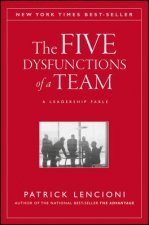
The Five Dysfunctions of a Team
105.13 zł -12 % -

The Making of a Manager
79.02 zł -14 % -

Turn The Ship Around!
52.01 zł -23 % -

Hooked
61.28 zł -15 % -

Inspired - How to Create Tech Products Customers Love, 2nd Edition
118.74 zł -10 % -

Give and Take
48.98 zł -14 % -

Multipliers, Revised and Updated
52.41 zł -20 % -

Devil Take the Hindmost
79.32 zł -13 % -

Traction
79.23 zł -12 % -

The 4-Hour Workweek
104.93 zł -12 % -

The Daily Stoic
60.27 zł -24 % -
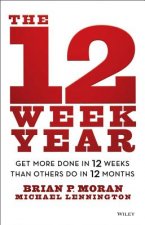
12 Week Year - Get More Done in 12 Weeks than Others Do in 12 Months
99.99 zł -11 % -
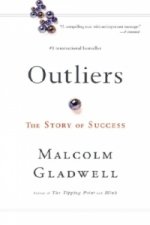
Outliers
41.72 zł -15 % -

Way, the Enemy, and the Key
176.60 zł -24 % -

Leadership BS
128.12 zł -11 % -

Managing Change in Organizations
140.31 zł -5 % -

Triggers
48.98 zł -14 % -

Scrum
52.01 zł -23 % -

7 Habits of Highly Effective People
79.32 zł -13 % -

Drive
52.01 zł -23 % -

New One Minute Manager
48.98 zł -14 % -

Wooden on Leadership
111.69 zł -23 % -

Spiral Dynamics - Mastering Values, Leadership and Change
164.71 zł -2 % -

Leaders Eat Last
57.75 zł -15 % -

The 7 Habits of Highly Effective People
115.92 zł -13 % -

How Women Rise
52.41 zł -15 % -

Dealing with Difficult People (HBR Emotional Intelligence Series)
84.87 zł -6 % -
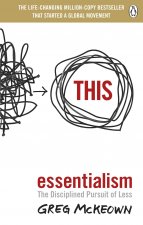
Essentialism
61.28 zł -15 % -

Million Dollar Habits
96.56 zł -6 % -

Unlimited Memory
85.88 zł -4 % -

Standard for Portfolio Management
305.64 zł -5 % -

Primal Leadership
116.12 zł -7 % -

Managing Transitions
88 zł -14 % -

I Dare You!
20.05 zł -23 % -

Executive Coaching with Backbone and Heart - A Systems Approach to Engaging Leaders with Their Challenges 2e
326.71 zł -

27 Challenges Managers Face
111.18 zł -10 % -
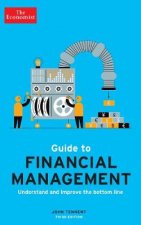
Economist Guide to Financial Management 3rd Edition
100.49 zł -

It's Not the How or the What but the Who
96.56 zł -27 % -

Millionaire Fastlane
97.57 zł -5 % -

Extreme Ownership
115.92 zł -13 % -

Leaders Eat Last
52.41 zł -15 % -

The Coaching Habit
68.24 zł -12 % -

Professional Product Owner, The
138.80 zł -5 % -
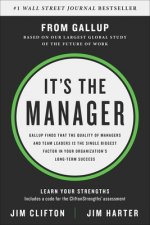
It's the Manager
155.94 zł -11 % -

Goal
105.64 zł -4 % -

Co-Active Coaching
137.59 zł -14 % -

The 10X Rule
107.55 zł -10 %
zadowolonych klientów
Od roku 2008 obsłużyliśmy wielu miłośników książek, ale dla nas każdy był tym wyjątkowym.
Copyright! ©2008-24 libristo.pl Wszelkie prawa zastrzeżonePrywatnieCookies



 21 milionów książek
21 milionów książek Dostawa 10.99 zł
Dostawa 10.99 zł (32) 444 93 66 (8-15.30h)
(32) 444 93 66 (8-15.30h)